Ready to work
Ready for Work is a project of the Labour, Social Affairs and Family Office, which assists in the retraining of the registered unemployed with a focus on production and technical education.
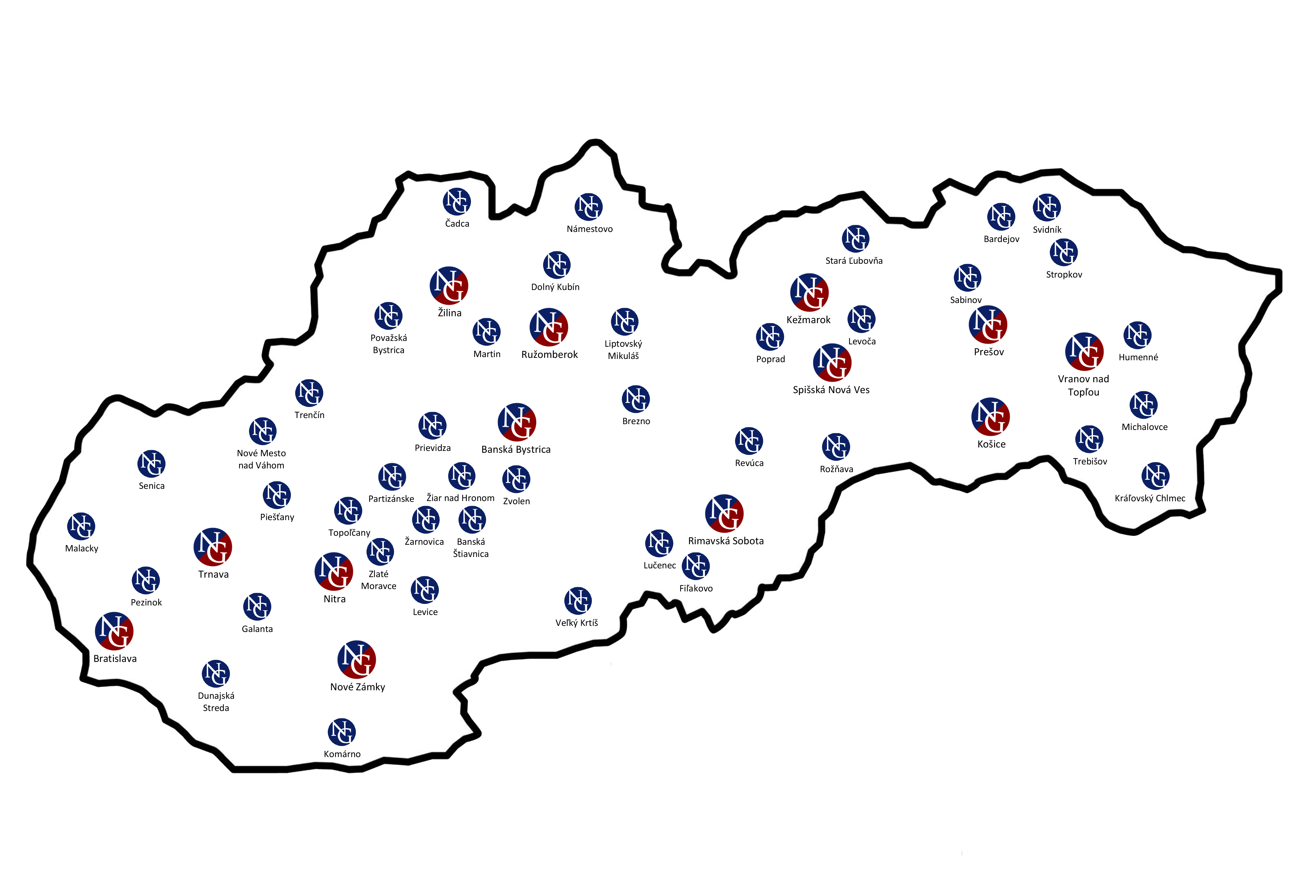
Ready to work
A project of the Central Office of Labour, Social Affairs and Family, which assists in the retraining of the registered unemployed with a focus on production and technical training.

PNP project success rate
By March 2020, more than 13 843 job seekers were trained in 59 training centres for inclusive education and in 21 centres for accredited education by 186 employed lecturers.
retrained applicants
LECTURERS in employment
places of implementation for inclusive education
places of implementation for accredited education
According to the latest statistics of the Office of Employment and Social Affairs as of March 2020, the project achieved 59.23% labour market employability of graduates, monitored within 6 months after the end of the course, and 44.42% retained the newly created jobs.
%
EMPLOYED WITHIN 6 MONTHS OF THE END OF THE PROJECT, INCLUDING ACTIVE PARTICIPANTS II. PHASE OF TRAINING
%
NEW JOBS CREATED
%
OF THE GRADUATES WHO HAVE BEEN EMPLOYED HAVE GAINED JOBS DIRECTLY IN THE AUTOMOTIVE OR ENGINEERING INDUSTRY
"Efforts need to be made to encourage both women and men to consider retraining and upskilling in non-typical industries."
(Council of the European Union, 8 June 2020)
Successful graduates of accredited education

%
men
%
Women

%
men
%
Women
The courses will also give people with minimal education a chance to enter the labour market.
Distribution of successful graduates by highest level of education attained
Inclusive education
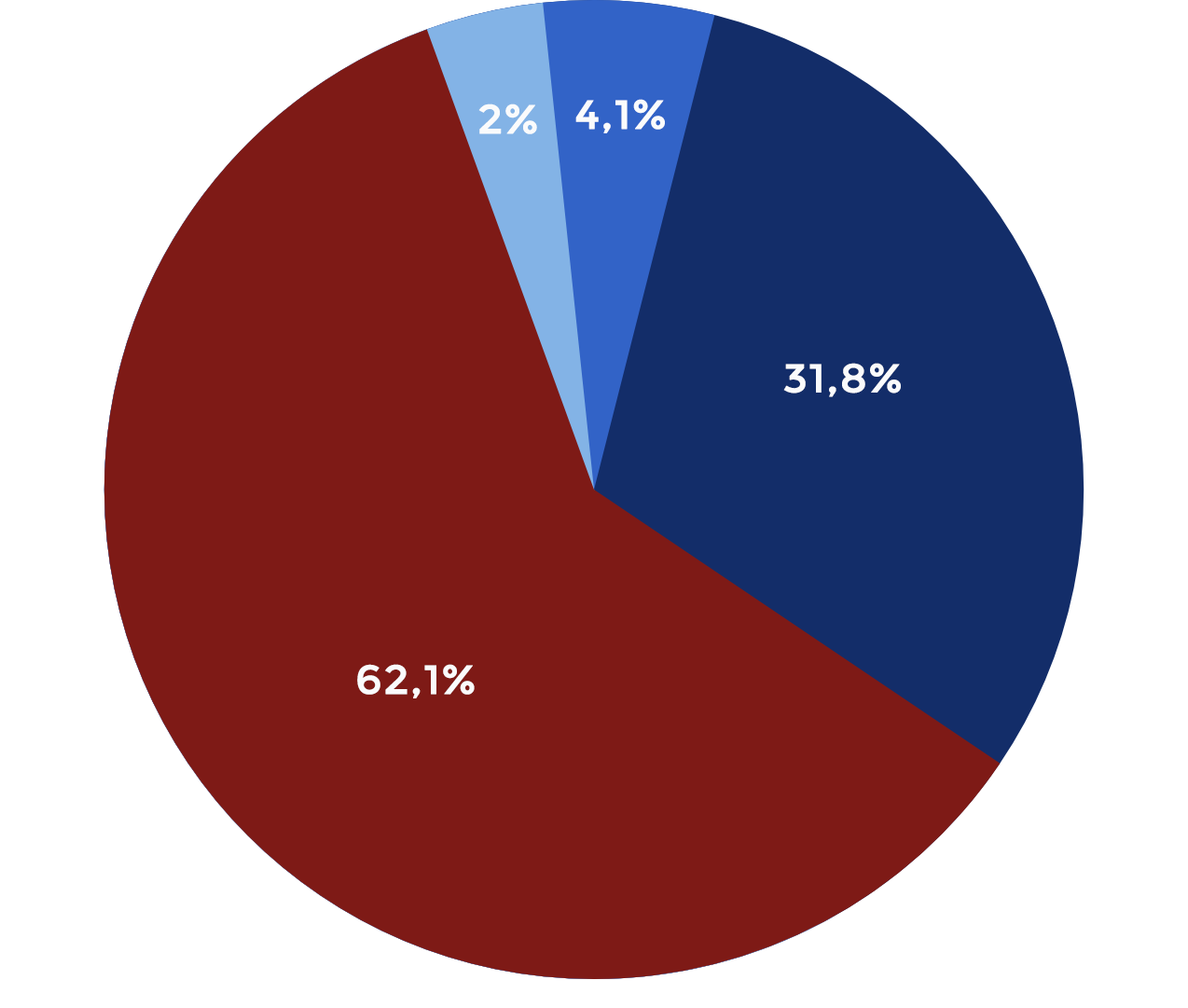
Accredited education
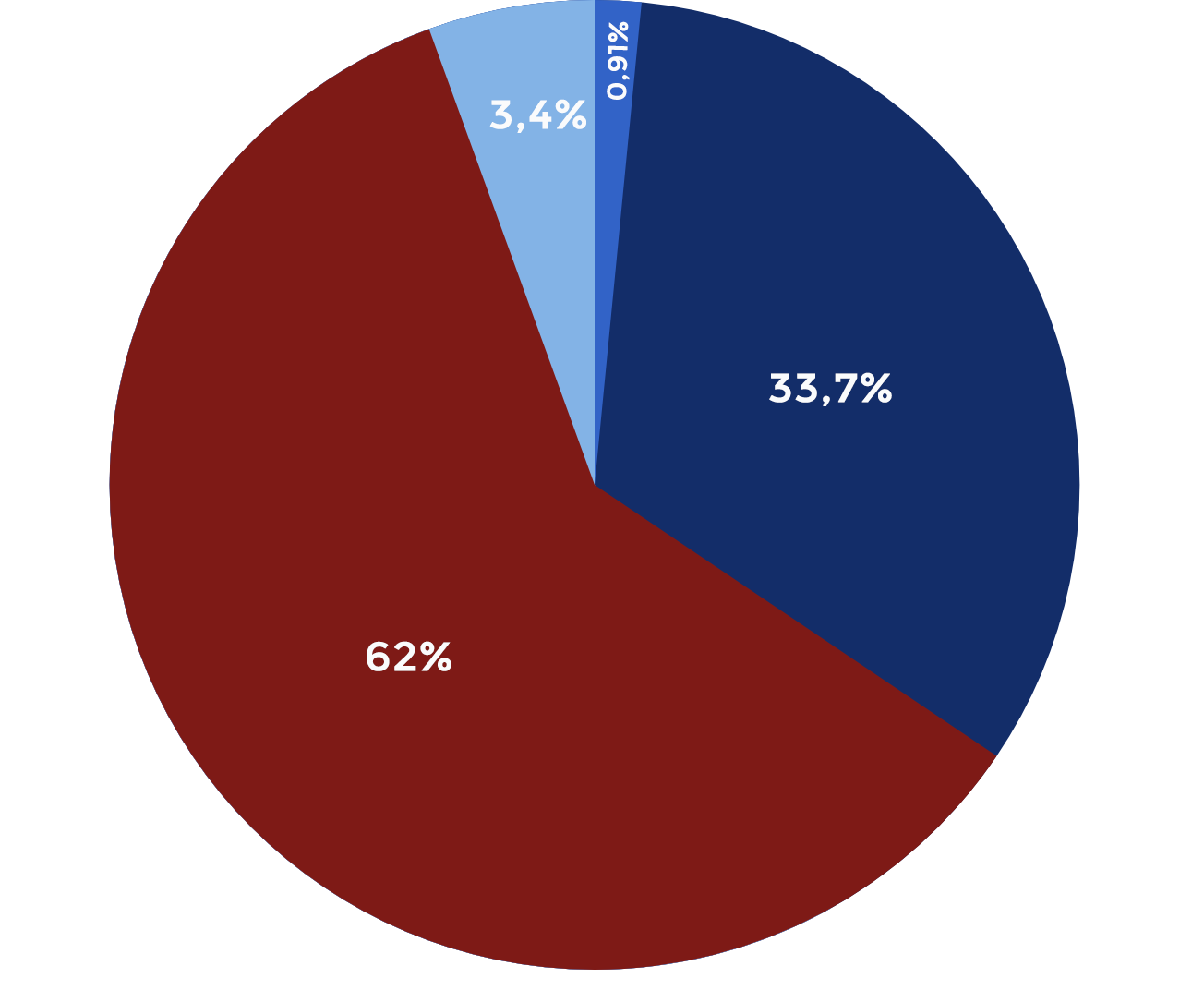
⬤ secondary
⬤ basic
⬤ university
⬤ incomplete basic
Project return Ready to work
Thanks to the rapid return on resources, retraining is one of the main instruments of active labour market measures and is also among the priority instruments of the European Commission. The cost of the basic course (€ 1,144.50 ) has a payback period of 3 months for the minimum wage, 1.65 months for the average wage in the national economy and 1.5 months for the average wage in industry, in terms of contributions and income tax for an employed graduate.
3 months
at minimum wage
Project phases
Inclusive education
The inclusive education course is suitable for all categories of job seekers, including disadvantaged job seekers, those without qualifications and those with minimal education.
The content of the course was tailored to the requirements of employers so that each participant had the opportunity to acquire the key soft skills needed to work effectively in a team and be prepared to succeed in a job interview.
During the practical part, participants will learn basic manual skills used in the work tasks of operator positions in production, get to know the basic technical terminology for the automotive, mechanical and electrical engineering industry, and learn to work safely with basic working tools, including coordination of tasks with colleagues.
By making it possible for candidates to acquire these key competences, regardless of age, gender or educational background, the course leads to real inclusion in the labour market, and every participant gets a chance to enter the labour market.
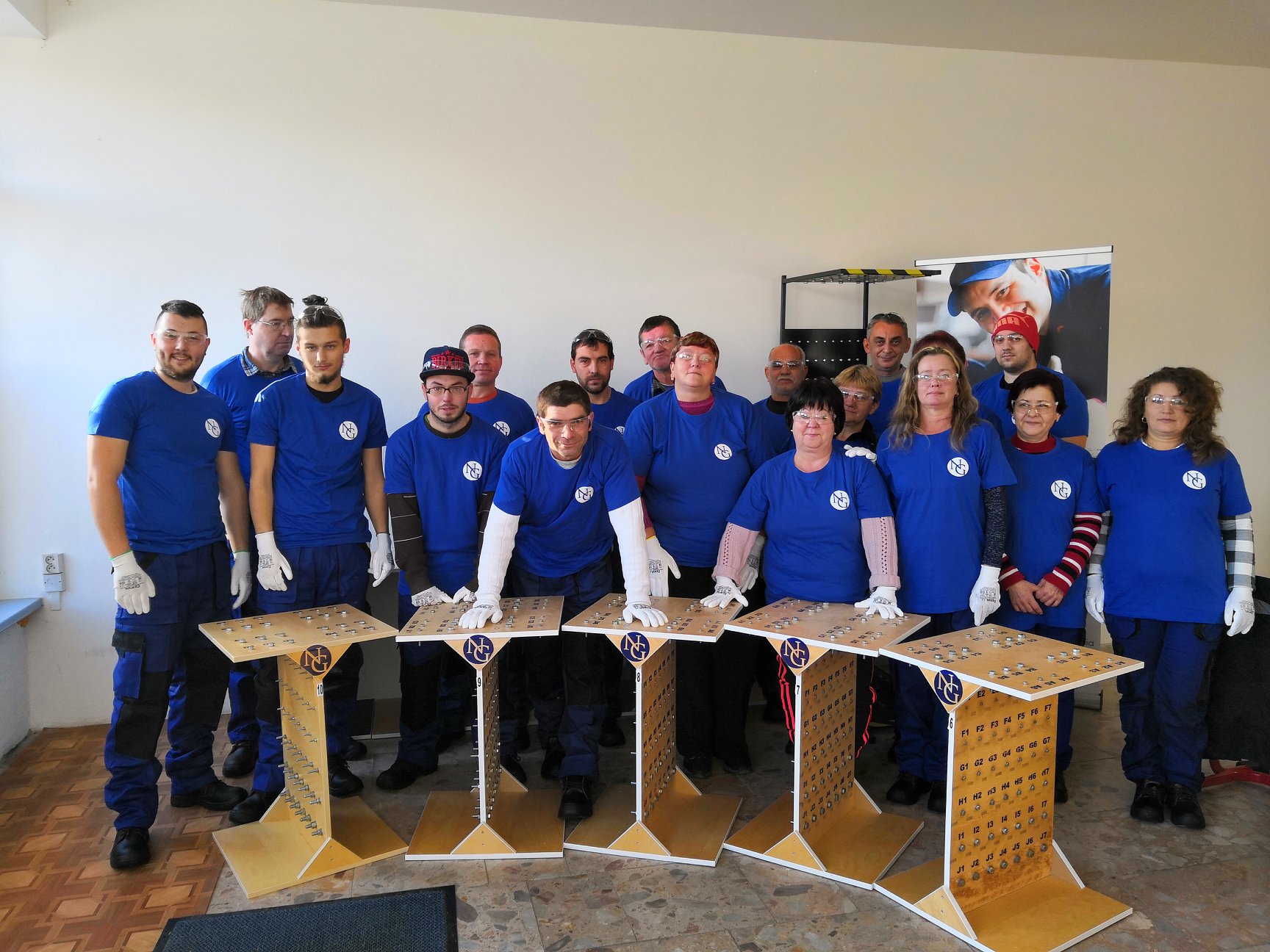


Certificate of completion of the training programme
At the end of Phase 1 of the Ready for Work project, candidates will take a final exam and, if successful, will receive proof of completion of the training programme: a certificate of completion of the training programme. Successful graduates of Phase 1 of the project will be prepared for a job as a production operator.
Jobseekers who go through the project will be able to be employed by any employer.

Labour market employability after Phase 1
Graduates will be prepared for a job as a production operator.
1 218 €
average gross salary for the position of machine and equipment operator in production
*data source www.platy.sk (updated 07/2020)

Call for retraining and up-skilling of adults
"Greater efforts should be made to engage socially disadvantaged people and enable them to enter, re-enter or stay in the labour market, to prevent the loss of their skills and to support their career development."
(Council of the European Union, 8 June 2020)
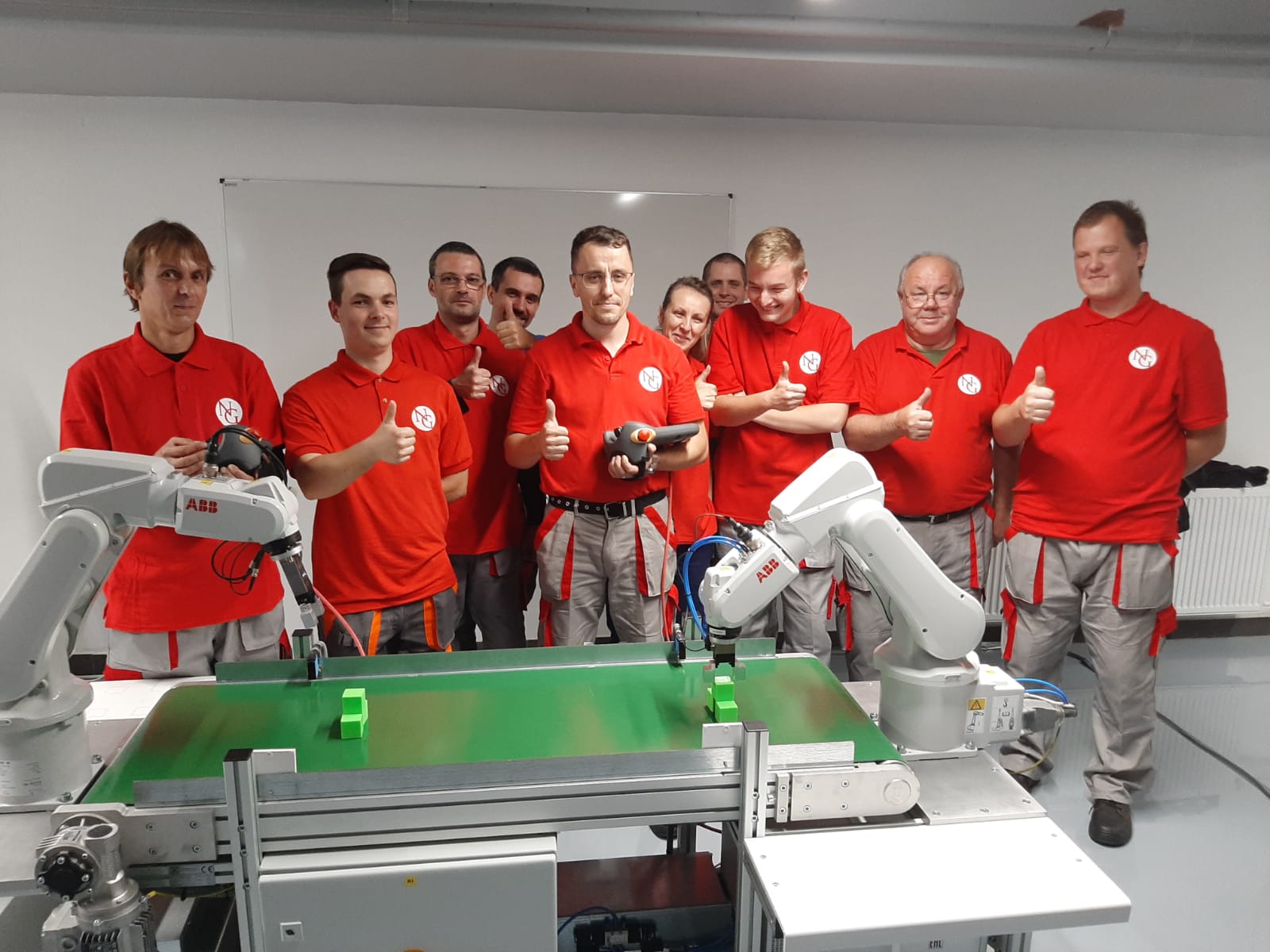
Accredited education
In the second phase, for the purpose of specialization, candidates acquire practical education and skills for a specific profession - e.g. mechatronics technician, toolmaker, electrical engineer of automation technology, CNC machine operator and others. All courses are conducted under the guidance of a professional lecturer.
The offer of the following 13 accredited courses was designed together with partners, which are employers and companies operating throughout Slovakia. Our graduates are trained according to the requirements of employers, or directly at them carry out part of practical training, which increases their employability on the labour market.
Accredited education
In the second phase, for the purpose of specialization, candidates acquire practical education and skills for a specific profession - e.g. mechatronics technician, toolmaker, electrical engineer of automation technology, CNC machine operator and others. All courses are conducted under the guidance of a professional lecturer.
We have designed our courses together with our partners, which are employers and companies operating all over Slovakia. Our graduates are prepared according to the requirements of employers, or directly at them carry out part of practical training, which increases their employability on the labour market.
Labour market employability after Phase 2
The average gross monthly salary for positions for which graduates can apply.
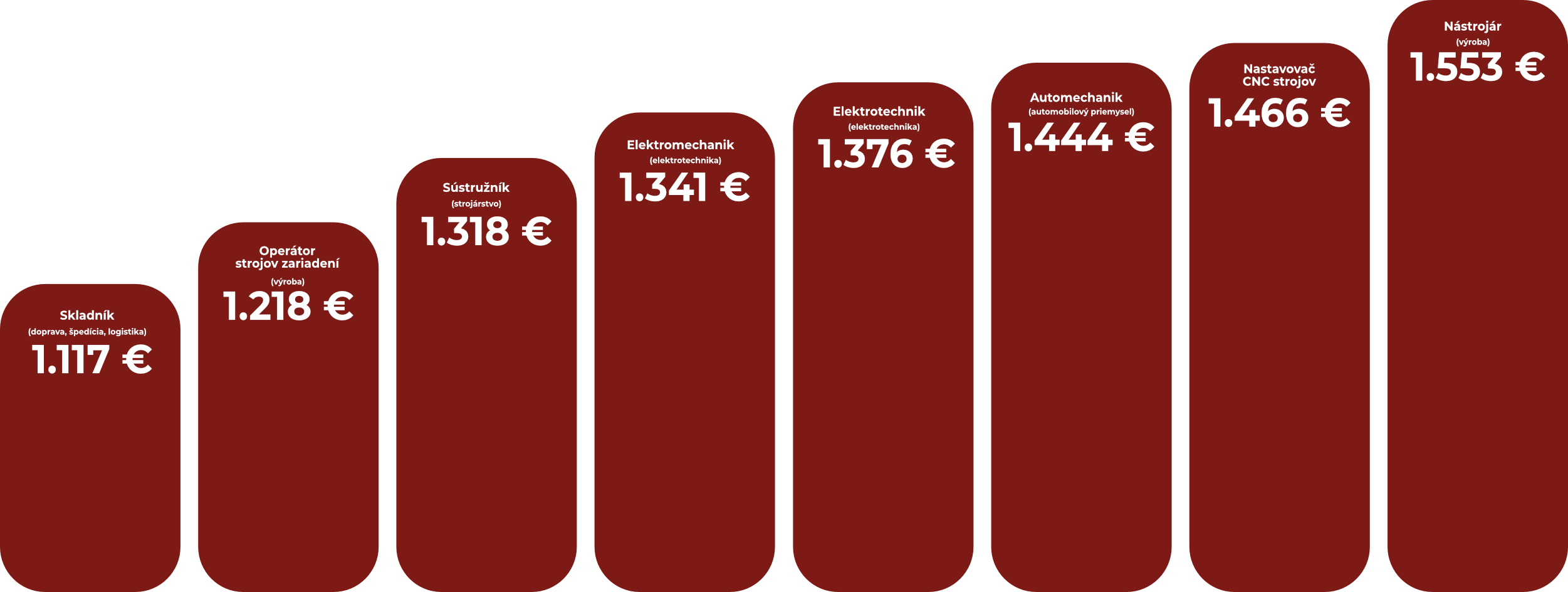
*data source www.platy.sk (updated 07/2020)
Frequently Asked Questions
What is the value of the certificate?
Our courses are accredited by the Ministry of Education, Science, Research and Sport of the Slovak Republic.
The certificate of successful completion is accepted throughout the European Union on the basis of the international recognition of the qualifications obtained.
How will I learn?
Our experienced lecturers will give you knowledge in the form of engaging practical demonstrations, role-playing, simulations from practical working life.
Where appropriate, practical training under the guidance of VET masters and employers is a core part of the course.
Our best calling card is a well-prepared graduate.
Can Newport Group prepare me for practice?
We have designed our courses together with our partners, which are employers and companies operating all over Slovakia.
Our graduates are trained according to the requirements of employers, or directly perform part of their practical training, which increases their employability on the labour market.
Can I get the right textbooks?
As a standard, we use our own textbooks, study materials and teaching aids prepared in cooperation with partners from practice. These teaching aids will stay with you after the course. In the gallery you will also find photos of the teaching aids we use in our courses.
What are the other benefits?
After the course, you will be left with textbooks, study materials and teaching aids to help you better navigate real-world situations after the course.
You will also keep all the protective equipment that you can continue to use.
During the courses you are reimbursed for travel and meals, after successful completion of the course you will receive a certificate.
In the case of accredited courses, it is possible to receive an incentive scholarship ranging from € 380 (for a course lasting 20 days) to € 3,420 (for a course lasting 180 days).
How do I apply for a course?
If you are interested in retraining through the Ready for Work project, you only need to contact the intermediary at your Job Centre, where you are registered as a jobseeker.
What is the duration of the course and how much does the course cost?
The length of the course varies depending on the type of course. For inclusive education, the course length is 21 days. Accredited courses last 7 days (logistics and warehouse management), 20 days (automation in mechanical engineering), 40 days (metalworker, machine mechanic - locksmith), 42 days (CNC machine operator), 59 days mechatronics technician in the automotive industry, and 180 days mechatronics technician, industrial mechanic, toolmaker, jig mechanic, automation electrical technician, auto-electrical technician and auto-mechanic.
As the courses are fully reimbursed by the Centre for Labour, Social Affairs and Family, your costs are zero. The Job Centre will also contribute to the costs associated with attending the course, such as travel or meals, if you meet the conditions.
Glossary of terms
Inclusion
Inclusive education refers to the promotion of access to the labour market, through targeted education aimed at combining theoretical knowledge, practical skills and work in a simulated employer environment.
Jobseeker
The term jobseeker means a citizen who can work, wants to work, is looking for a job and is entered in the register of jobseekers of the Office, and who is not an employee, is not in an employment relationship based on an agreement on work performed outside the employment relationship or does not perform gainful activity based on a legal relationship under a special regulation, does not operate or perform self-employment, or does not perform gainful activity in a Member State of the European Union or in a foreign country.
Labour market
It is a (theoretical) market in which the factor of production, labour, is traded.
It is subject to the same laws as other markets. Demand for labour is determined by firms, businesses and other producers. It depends on other factors of production, in particular the size of capital and the technology used. The demand for labour is a derived demand, that is, it depends on the demand for the results of that labour. Labour supply is therefore the size of the working-age population, which is made up of all people who are actively at work, as well as the unemployed.
Lifelong learning
Continuing education forms part of lifelong learning. It takes place through formal and non-formal education and informal learning. It enables everyone to supplement, broaden and deepen their education, to retrain or to satisfy their interests. It takes place in further education institutions, schools, educational and non-educational establishments.
Retraining
Retraining is the preparation of jobseekers for employment in the labour market with the aim of acquiring knowledge, skills and competences in a retraining course delivered by a retraining provider. Retraining mainly consists of training activities aimed at acquiring a different qualification than the one already possessed by the participant.
Lean management
It helps individuals or teams to quickly understand processes so that any waste in production can be quickly identified and eliminated. This reduces costs, the processing time required and improves quality. The basics are needed for line workers to avoid downtime in the production process.
Soft skill
Soft skills are associated with a person's personality traits and abilities. They are interpersonal skills. They include how a person behaves, their attitude, how they can communicate and cooperate with others, manage conflict and stress, and manage their time and energy.
Hard skill
Hard skills are professional and technical knowledge and skills. They can be acquired more easily through study and practice.
"The 2030 UN Sustainable Development Goals commit to providing inclusive
and equitable quality education at all levels and to promote lifelong learning opportunities for all, especially those in vulnerable situations."
(Council of the European Union, 8 June 2020)
Consortium of suppliers
The "Ready for Work" project is implemented by the Consortium Deutsch-Slowakische Akademien (DSA), a subsidiary of the German education group EBG and the company Newport Group (NG), a member of the EVBB European Association of Institutes for Vocational Training. The subcontractor is the Dual Academy.
They said about us
"I learned a lot of new things about working and communicating in a team, how to write a CV, a cover letter and how to prepare for a job interview. We also learned and got to know how to work on the polygon."
Peter, course graduate
"The course in inclusive education motivated me so much that I decided to do a course in logistics afterwards. Thanks to this course, I found a job in a large retail chain."
Veronika, course graduate
"As I was struggling to find a job, I signed up for this course to learn something new. I would recommend the course to anyone applying for a job."
Marcela, course graduate
CONTACT
Write to us
If you have any questions, we are at your disposal.



